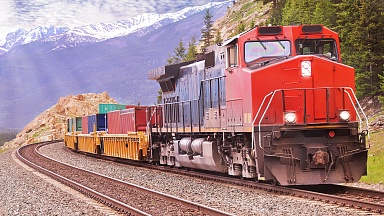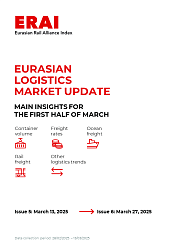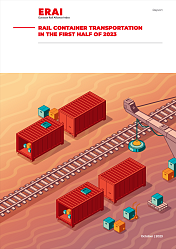Investments and projects
The Asian Development Bank (ADB) will allocate $240 million for implementation in Uzbekistan of the project «Construction of internal roads with cement concrete coating». This will allow the construction of 841 km of roads.
Sinoma (China) is building a Terek-Tash clinker production plant in the Chui region of Kyrgyzstan. Commissioning is scheduled for August 2024. The production capacity will be 1 million tons per year, investments in the project will amount to $ 160 million.
In 2020-2023, more than 2 thousand km of roads were paved in Kyrgyzstan. In total, more than 80 billion soms were spent for these purposes. In 2024 it is planned to spend more than 15 billion soms for these purposes.
Due to a preferential government loan from the Eximbank of China, a full-scale modernization of 9 border checkpoints on the border of Kazakhstan with Uzbekistan, China and Kyrgyzstan is being carried out. The result will be an 8-fold increase in their throughput. The total costs will amount to more than 100 billion tenge.
Economic policy and cooperation
Kazakhstan has adopted a law on extending the agreement on the transit of oil from Russia to China through the territory of Kazakhstan. The agreement has been extended until 2033 and involves the transportation of up to 10 million tons of oil per year.
The construction of the Moscow — Saint Petersburg (Russia) HSR will increase the capacity of railways towards the ports of the Baltic Sea by 30 million tons per year after 2030. For a number of correspondence, the tariff distance for cargo delivery will be reduced by 400 km, which will be important for Kazakhstan and Central Asian countries using the infrastructure of seaports on the Baltic Sea for the export and import of goods of national foreign trade.
Iran will join the EAEU project for the transportation of agroindustrial complex products «Eurasian Agroexpress». This will increase trade turnover by more than three times, to $ 18-20 billion from $6.2 billion recorded in 2022. Thus, on average, the duty rate for Russian suppliers to Iran will decrease from 30% to 4.5%.
Uzbekistan and the EU have signed a memorandum of understanding on the development of sustainable value chains in the field of critical raw materials. It is expected that this will help Uzbekistan in the development of the extractive industry, and for the EU it will provide access to such minerals as copper and molybdenum. Earlier in 2022, the same agreement was signed between the EU and Kazakhstan.
The transit of goods from South Korea to Central Asian countries will pass through Kazakhstan. An agreement on this was reached between Kazakhstan Temir Zholy JSC and the relevant South Korean structures.
In September 2024, it is planned to open the third automobile checkpoint «Bedel» on the Kyrgyz-Chinese border.
Trends and forecasts
Rail transportation of containers from China to the EU in transit through the territory of Russia, which decreased in 2022, is recovering. In the first quarter of 2024, they increased by 44%, to 90 thousand TEU, which is close to the pre-crisis level. Consignees are attracted to the route by short deadlines — they have been lengthened in maritime traffic due to increased risks to navigation in the Red Sea.
In January — February 2024, the cargo turnover of the ports of the Astrakhan region (Russia) doubled compared to the same period last year. The total volume of transshipment exceeded 928 thousand tons.
The original is available in Russian
ЕАБР. 2024. «Мониторинг инфраструктуры.» Eabr.org. 2024. https://eabr.org/analytics/monitoring-infrastruktury/#tab2024.




